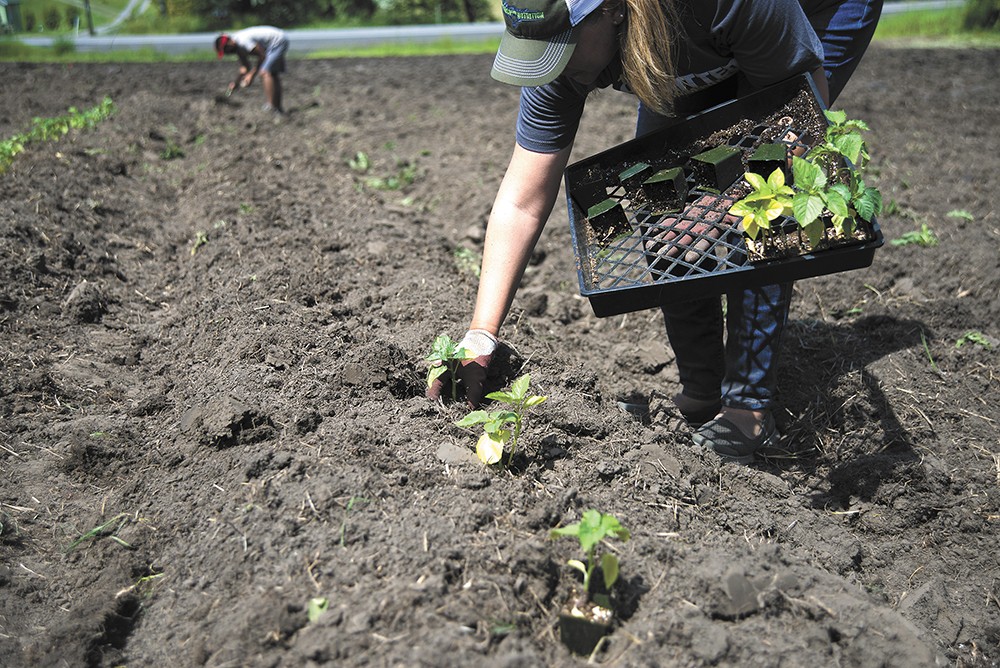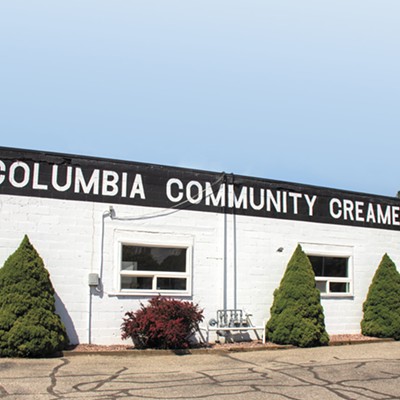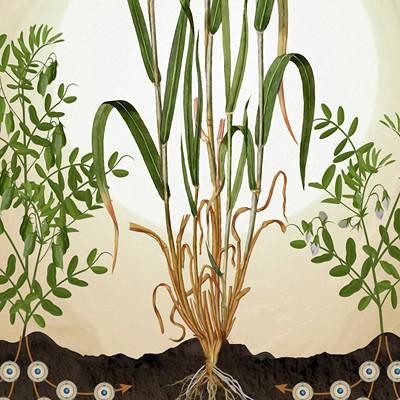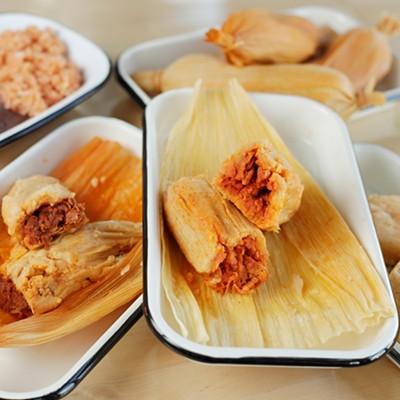
After eight years in the U.S. Army, Nate Lewis is preparing for the transition into civilian life. He realized he wants to be a farmer.
"Then he realized he'd never farmed," says Vicki Carter, director of the Spokane County Conservation District.
It turns out he was in the right place at the right time — a conservation district program can help him with that. Barely a year old, Vets on the Farm started as a way to kill two birds, as they say.
"We're at a critical point in our agriculture," Carter says. Many in the country are worried about the food supply as the bulk of farmers reach retirement age. They're trying to attract young blood to the industry. At the same time, post-9/11 veterans transitioning out of the military need guidance and education.
Carter and others from Washington State University Extension and Northwest Farm Credit Services built a program designed to leverage education and hands-on experience to get veterans — no matter their age — ready to start their own business or take a job that uses these skills.
The idea took hold locally. The program has had more than 30 participants, with interests ranging from small vegetable farms to livestock to commercial kitchens. Emtman Brothers Farm in Valleyford, Wash., donated three acres and a house for a learning farm. Veterans grow vegetables on a little less than an acre to to sell to Spokane Produce, a local distributor. Carter hopes to raise money to build a greenhouse on the farm in the fall.
It's also expanding outside Spokane County. Chelan, Grant, Stevens and Whitman counties in Eastern Washington are at different stages of starting their own Vets on the Farm programs. The Washington Department of Veterans Affairs wants to use it as a statewide model.
Lewis was already a backyard gardener when he joined Vets on the Farm. The Cultivating Success course through WSU Extension teaches the nuts and bolts of an agricultural business. Lewis learned how to turn his backyard enterprise into a full-blown market garden. Now, he works as the foreman on the learning farm. It's his task to keep meticulous track of this first year of growing, from the number of plants and how they're arranged to their profitability.
He's well-suited for the task. In the army, he was a logistics coordinator.
Pairing veterans with agriculture is a very practical solution, but it doesn't end there.
A 10-year-old study by the University of New Hampshire found that people from rural areas in the U.S. enlist in the military at higher rates than suburb or city dwellers, partly because they lack job opportunities in traditionally rural industries, including farming.
The Farmer Veteran Coalition was founded in 2007 in Davis, California, with the unique goal of addressing the number of veterans who would return home to rural America, looking for work.
Carter was introduced to the coalition two years ago through a local veterans event, where she learned how well agriculture jobs suit veterans, about skills that translate to fields — a lot of farmers use drones now, for example. And about the healing that happens. After a career focused on destruction, veterans thrive in a job centered on creation, she says.
"I've worked with this district for 25 years. I come from a large, military-based family, including my own son, who's been deployed three times in the last five years," Carter says. "I sat there thinking, 'How come I've never heard of anything going on in Spokane?'"
A program in Lynden, Washington, uses sustainable farming as an alternative therapy for post-traumatic stress disorder and traumatic brain injury, but Carter wanted something that includes job development. The purpose resonates with veterans involved in Vets on the Farm.
Dan Ross, a conservation district employee as well as a veteran and a farmer, says this kind of work has a therapeutic effect. While he didn't see a lot of combat action when he served, the stress of the job took its toll.
"I spend a lot of time on my own place, gardening just to get my hands in the dirt," he said. "It's so simplistic, but it's huge."
Scott Gail, a former Army Ranger, says that agriculture just makes sense to him. It's a more peaceful occupation for soldiers who have "kicked down too many doors," he said. But like the military, it's focused on a mission.
After taking the WSU Extension course, Gail started a business helping farmers rebuild soil health in worn-out fields. It's an unexpected outcome, so many years after he left his family's dairy farm in Minnesota.
"The only thing I wanted to do was get away from agriculture," he says. Now, at 45, it's his new purpose: "Chickens just meet me at the door, and it's happy." ♦





















